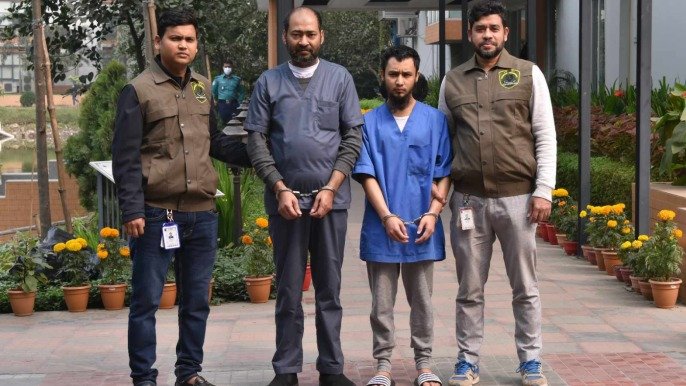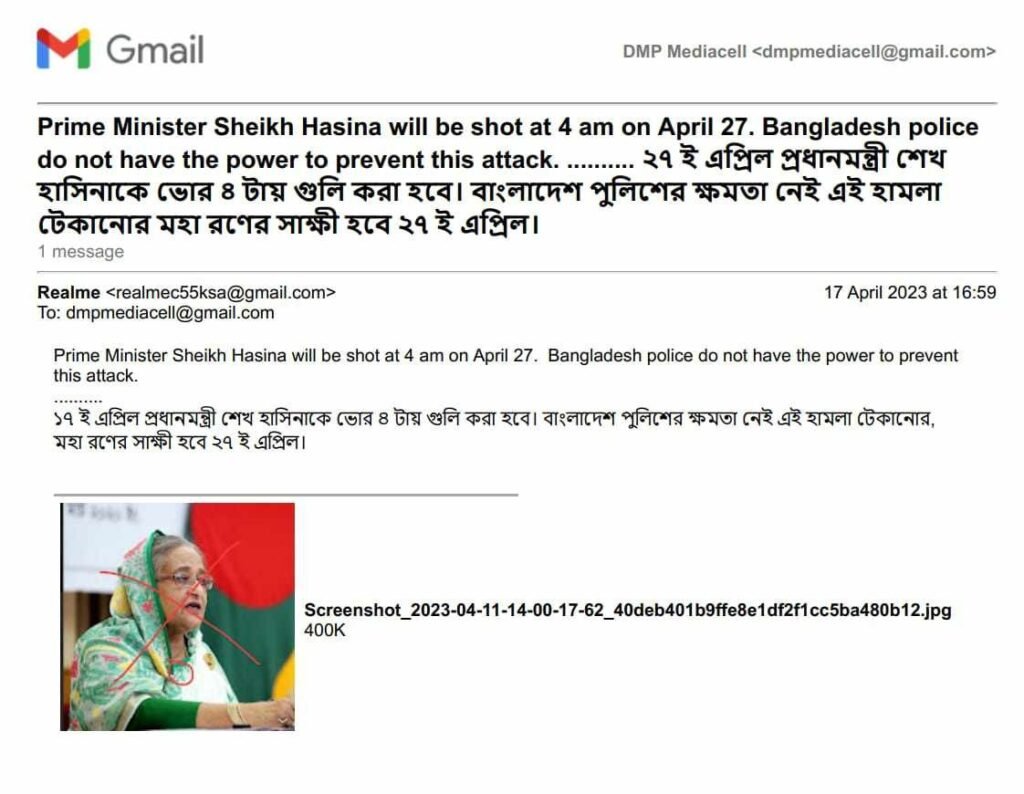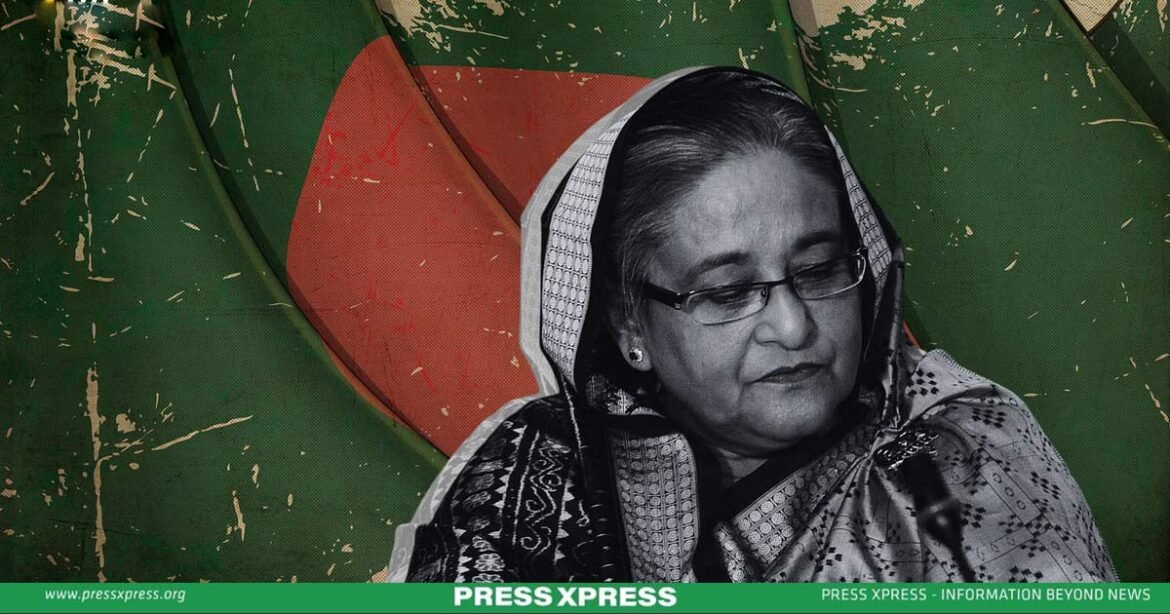The Cyber Crime and Transnational Crime Unit (CTTC) achieved a significant victory by collaborating internationally to capture and return apprehended two individuals, preventing their planned assassination of Prime Minister Sheikh Hasina
The Cyber Crime and Transnational Crime Unit (CTTC) apprehended two individuals, Deen Islam and Kabir Hossain, who had sent a threatening email aimed at assassinating Prime Minister Sheikh Hasina on 17th April 2023. The Saudi Arabian government assisted in their arrest and deportation. The email, received by the Dhaka Metropolitan Police, contained a specific threat regarding the Prime Minister’s safety. With Saudi Arabia’s cooperation, the CTTC managed to identify and repatriate the suspects, who are currently under police custody. This attempt sheds light on the persistent dangers faced by Sheikh Hasina, who has miraculously survived 19 previous assassination attempts.

Terror Plot Uncovered: CTTC Investigation
CTTC’s Additional Commissioner Asaduzzaman announced at a press conference held at the DMP media center on Sunday (4th February 2024) that the pair had repatriated to the country on January 29, 2024, following the submission of an application to the Saudi Arabian government via the Ministry of Foreign Affairs.

Kabir Hossain holds the position of president in the Saudi Arabia unit of Jubo Dal, and Deen Islam is also affiliated with the party. The motive behind their threat was to instigate chaos in the country. The CTTC utilized technical analysis to trace the email sender Deen Islam, confirming his involvement. The suspects had employed a mobile phone and a newly created email account to carry out their threat, subsequently destroying the phone and deactivating the email address. Investigations are ongoing to ascertain if others were involved in the plot.
Survival Saga of Sheikh Hasina: After 19 assassination attempts
Prime Minister Sheikh Hasina, who also serves as the President of Bangladesh Awami League, has narrowly escaped death on at least 19 occasions, with the most severe incident occurring on August 21, 2004, during which grenades hurled by unidentified assailants struck an Awami League rally.
Both the AL and Prime Minister Sheikh Hasina herself have attested to her miraculous survival on 19 separate occasions. AL leaders and officials recount that since her return to Bangladesh on May 17, 1981, six years after the assassination of her father, Bangabandhu Sheikh Mujibur Rahman, on August 15, 1975, Sheikh Hasina has withstood a dozen gun and bomb attacks.
Tragic events unfolded on that fateful day in 1975, claiming the lives of most members of Bangabandhu’s family, while Sheikh Hasina and her sister, Sheikh Rehana, were spared as they happened to be abroad at the time. Upon her return, Sheikh Hasina took the helm of a shattered Awami League, eventually ascending to the position of Prime Minister in 1996, and she is presently serving her consecutive 4th term in that capacity.
The first recorded attempt on Sheikh Hasina’s life dates back to November 10, 1987, during her participation in an anti-military demonstration near the Secretariat building. Subsequent incidents include an attack during a public address in Chittagong on January 24, 1988, an assault on her residence in Dhanmondi on August 10, 1989, and an incident near a polling center at Green Road in the capital on September 11, 1991.

Further attempts ensued, including an attack during a train march program in Ishwardi on September 13, 1994, and an assassination bid during a rally at Russel Square in Panthapath on December 7, 1995. Despite sustaining injuries and facing perilous situations, Sheikh Hasina persisted in her political endeavors.
The saga of assassination attempts continued, with instances such as the recovery of explosives near Sheikh Lutfor Rahman College at Kotalipara on July 20, 2000, and the discovery of a bomb planted under Rupsha Bridge in Khulna on May 29, 2001.
September 25, 2001, marked another perilous encounter for Sheikh Hasina during an election campaign in Sylhet, where a bomb explosion claimed two lives. Subsequent years saw further attacks, including an assault on her motorcade in Naogaon on March 4, 2002, and a foiled gun attack in Gournadi, Barisal, on April 2, 2004.
The most egregious attack occurred on August 21, 2004, when grenades were unleashed upon an opposition rally, resulting in numerous casualties and injuries, including prominent AL figures. Despite the dangers she faced, Sheikh Hasina continued to persevere in the face of adversity.
Additionally, Sheikh Hasina endured a period of incarceration from July 16, 2007, to June 11, 2008, during which she was subjected to slow poisoning. Furthermore, in December 2011, a conspiracy orchestrated by the killers of Bangabandhu sought to eliminate her through a military coup, which was thwarted due to the exposure of the plot and the apprehension of several conspirators.
Further plots against her life emerged, including one involving women suicide bombers in 2014, and another in 2015 orchestrated by activists of the outlawed JMB. Additionally, a conspiracy in 2011 involving a Sri Lankan extremist group, backed by an antagonistic state, was uncovered, ultimately failing due to the demise of the suicide squad members in a road accident en route to Kolkata Airport.
Conclusion
In a remarkable display of international cooperation, the Cyber Crime and Transnational Crime Unit (CTTC) successfully apprehended and repatriated Deen Islam and Kabir Hossain, thwarting their sinister plot to assassinate Prime Minister Sheikh Hasina. This event underscores the ongoing threat to her life, echoing a history of resilience against numerous attempts on her safety. Sheikh Hasina’s perseverance remains a testament to her unwavering dedication to Bangladesh’s progress despite immense challenges.


